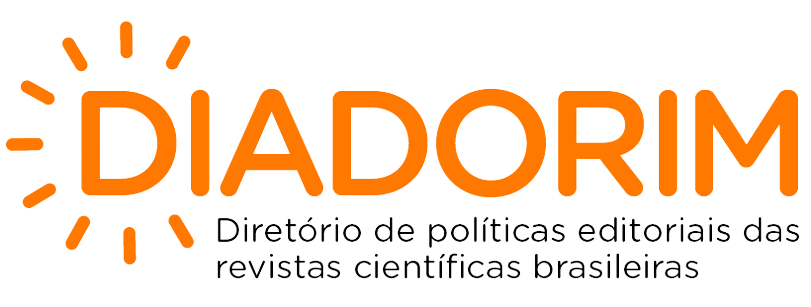Evaluation of controlled vocabulary use in institutional repositories
DOI:
https://doi.org/10.5433/2317-4390.2022v11n1p52Keywords:
Institutional repositories. Controlled vocabulary. Indexing evaluation. Subject retrievalAbstract
Objective: To develop and apply a methodology for evaluating the use of controlled vocabularies for vocabulary control in institutional repositories.
Methodology: The methodological procedures were carried out in two stages: a) analysis of the literature on the evaluation of the use of controlled vocabulary to control vocabulary in institutional repositories and; b) exploratory-explanatory application with case studies of six institutional repositories that use controlled vocabulary and in an institutional repository that does not integrate the controlled vocabulary for indexing and retrieval by subject. The second stage consisted of applying evaluative criteria in two categories of analysis: intrinsic evaluation, containing criteria aimed at the repository itself, and extrinsic evaluation, with criteria aimed at the analysis of representation and information retrieval.
Results: In most of the analyzed institutional repositories that integrate controlled vocabulary, the retrieval by subjects presents good precision from searched terms, while the repository that does not integrate the controlled vocabulary needs greater terminological control of the terms correlated to the theses and dissertations searches to greater precision in the retrieval of informational resources.
Conclusions: The more specialized the vocabulary controlled in relation to the domain of the institutional repository, the more effective the subject retrieval will be. The lack of standardization in the representation causes failures in the recovery with inconsistencies in the interaction of the institutional repository with its users.
Downloads
References
ANSI/NISO. Z39.19 - 2005. Guidelines for the construction, format, and management of monolingual controlled vocabularies. Bethesda: NISO Press, 2005.
BOCCATO, V. R. C; FUJITA, M. S. L. Estudos de avaliação quantitativa e qualitativa de linguagens documentárias: uma síntese bibliográfica. Perspectivas em Ciência da Informação, Belo Horizonte, v. 11, n. 2, p. 267-281, 2006.
FUJITA, M. S. L.; TOLARE, J. B. Vocabulários controlados na representação e recuperação da informação em repositórios brasileiros. Informação & Informação, Londrina, v. 24, n. 2, p. 93-125, 2019.
GIL LEIVA, I. Manual de indización: teoría y práctica. Gijón: Trea, 2008.
HARPRING, P. Introdução aos vocabulários controlados: Terminologia para arte, arquitetura e outras obras culturais. São Paulo: Secretaria da Cultura do Estado de São Paulo, Pinacoteca de São Paulo, ACAM Portinari, 2016.
KOBASHI, N. Y. Vocabulário controlado: estrutura e utilização. Brasília, Escola Nacional de Administração Pública, 2008.
LANCASTER, F. W. El control del vocabulário em la recuperación de información. 2. ed. Espanha: Universitat de València, 2002.
LANCASTER, F. W. Indexação e resumos: teoria e prática. 2. ed. Brasília: Briquet de Lemos/livros, 2004.
LEITE, F. C. L.; AMARO, B.; BATISTA, T.; COSTA, M. Boas práticas para a construção de repositórios institucionais da produção científica. Brasília: IBICT, 2012.
SILVA, B. Vocabulário de termos livres e controlados para a coleção de teses e dissertações da Universidade Federal de Viçosa. 2015. Dissertação (Mestrado em Biblioteconomia) - Universidade Federal do Estado do Rio de Janeiro, Rio de Janeiro, 2015.
SOUSA, J. L. Avaliação do padrão Simple Knowledge Organization System (SKOS) para a representação de vocabulários controlados. 2019. 100 f. Dissertação (Mestrado em Ciência da Informação) - Universidade Federal de São Carlos, São Carlos, 2019.
SOUZA, J. C. C. E.; CAMPOS, M. L. A. Avaliação de linguagem de indexação aplicada à informação jornalística: estudo de caso. In: ENCONTRO NACIONAL DE PESQUISA EM CIÊNCIA DA INFORMAÇÃO (ENANCIB), 8., 2007, Salvador. Anais [...]. Salvador, 2007. p. 1-17.
TERRA, G. M.; VASCONCELOS, T. R. Vocabulário controlado em repositórios de instituições de ensino superior brasileira: estudo comparativo. RACIn, João Pessoa, v. 3, n. 1, p. 32-51, jan./jun. 2015.
Downloads
Published
How to Cite
Issue
Section
License
Copyright (c) 2022 Informação@Profissões

This work is licensed under a Creative Commons Attribution 4.0 International License.
A revista se reserva o direito de efetuar, nos originais, alterações de ordem normativa, ortográfica e gramatical, com vistas a manter o padrão culto da língua e a credibilidade do veículo. Respeitará, no entanto, o estilo de escrever dos autores. Alterações, correções ou sugestões de ordem conceitual serão encaminhadas aos autores, quando necessário.
O conteúdo dos textos e a citação e uso de imagens submetidas são de inteira responsabilidade dos autores.
Os trabalhos publicados passam a ser propriedade da revista Informação& Profissões, ficando sua reimpressão total ou parcial sujeita a autorização expressa da revista. Em todas as citações posteriores, deverá ser consignada a fonte original de publicação, no caso a Informação&Profissões.












